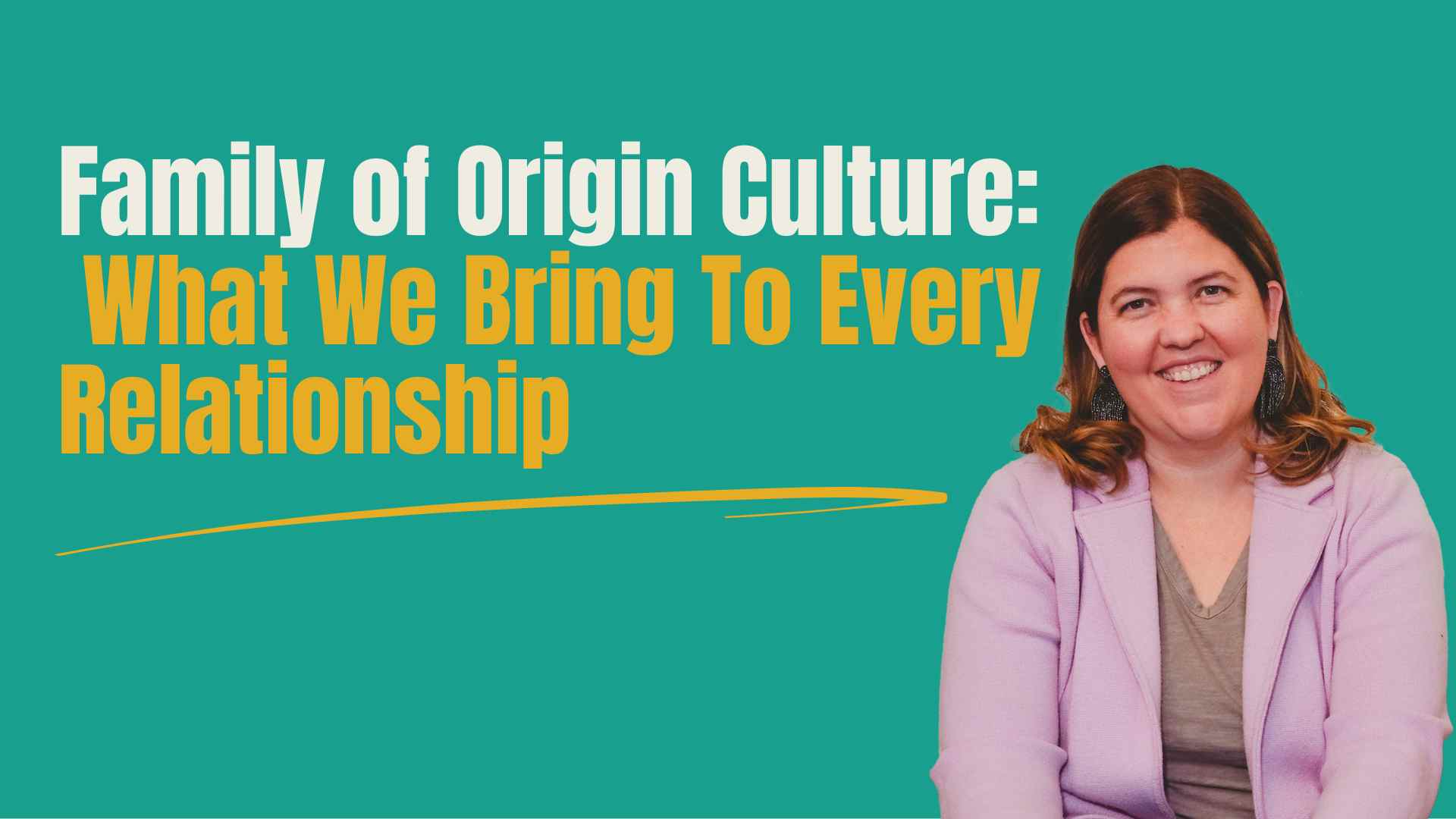
When we think about relationships—whether romantic, platonic, or familial—we often overlook the profound influence of our family of origin. The way we were raised, the dynamics we witnessed growing up, and the traditions we participated in all shape the way we interact with others.
The Unseen Influence of Family Culture
Family culture is the water we swim in—it’s so ingrained in us that we often don’t even recognize it. That is, until we enter into a relationship with someone whose family culture is different. A great example is marriage, where two individuals bring their respective family norms into a shared life. Often, they don’t realize just how much their upbringing has shaped their expectations and behaviors.
For instance, how does a couple decide where to celebrate the holidays? One person might assume they’ll always spend Thanksgiving at their parents’ house, while the other envisions traveling somewhere new each year. These assumptions, shaped by family traditions, can lead to friction if they are not discussed and negotiated.
Small Things Can Become Big Things
Sometimes, it’s the seemingly minor differences that cause the most tension. Take something as simple as loading the dishwasher. Do you place forks prongs-up or prongs-down? It sounds trivial, but small disagreements like this can become stand-ins for larger power struggles in a relationship. Household tasks, communication styles, and conflict resolution strategies are often deeply embedded in our upbringing, and we might not realize we’re holding onto them until we face resistance.
Conflict and Communication Styles
Beyond traditions and daily routines, family culture plays a major role in how we handle conflict. Some families address disagreements head-on, openly debating issues until they reach a resolution. Others may sweep conflict under the rug, avoiding confrontation at all costs. If two people with opposing approaches to conflict enter into a relationship, they might find themselves frustrated with one another’s communication styles.
This applies to friendships, workplace dynamics, and even parenting styles. If one person is accustomed to talking to their family multiple times a week, while their partner is used to once-a-month check-ins, this difference in communication expectations can cause friction. The key is recognizing these ingrained behaviors and finding ways to navigate them together.
Creating a New Relationship Culture
The good news is that family of origin does not dictate the way your relationships must function. You have the power to take what works for you and leave behind what doesn’t. Every relationship—whether a marriage, friendship, or even a co-worker relationship—has its own unique culture that can be consciously created. The goal is to integrate different perspectives in a way that honors both individuals while fostering mutual understanding.
Therapy can be an invaluable tool in this process. A therapist provides an unbiased perspective, helping individuals and couples step back and examine their relationship dynamics objectively. Often, just recognizing where a behavior or expectation comes from is enough to create positive change.
What Are You Bringing Forward?
As you reflect on your relationships, ask yourself: What aspects of my family culture am I carrying forward? Are they serving me well, or are they creating unnecessary conflict? Understanding these dynamics is the first step toward building healthier, more fulfilling relationships.
If you could benefit from therapy or just want someone to walk with you through relational issues, please set up a consult call so we can talk more.
